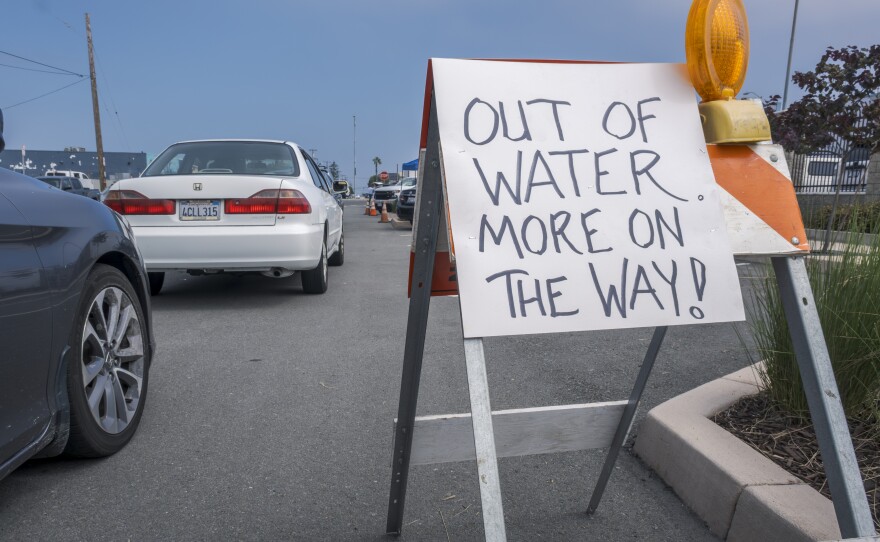Imperial Beach, the Silver Strand, and some homes in Chula Vista and San Diego remain under a boil water order on Friday.
More than 106,000 residents are being urged to avoid using tap water without first boiling it to kill pathogens.
California American Water (CAW) – the private company in charge of the region’s water system – said a test came back positive for E. coli contamination on Thursday.
The company remains confident that the water supply is not contaminated, blaming a dirty faucet at a testing site.
“Our water systems are pressurized, so for example, if there was a main break, the water would flow away from our water system,” said Brian Barreto, a regional manager for CAW. “So, we do not believe there is any emerging contaminate, e-coli, in our water system.”
But state rules required the company to issue the boil water order until the system is proven free of contamination.
“We are going to take a second round of sampling this afternoon and we’ll get the results in 24 hours, tomorrow,” Barreto said. “Should we get two negative results, we will immediately lift the boil water notice.”
Each test takes 24 hours because water samples have to be cultured in a lab to confirm or refute the presence of pathogens.
CAW began passing out bottled water in Imperial Beach but local supplies were scarce because of tropical storm Hilary.

The boil water order is another crushing blow for Imperial Beach.
“(I’m) Just disappointed in how we have been marginalized and disenfranchised and forgotten about as a community,” said Paloma Aguirre, the mayor of Imperial Beach. “We’ve suffered with our ocean being poisoned for so long. Only to find out later on, that our air is poisoned as well, our parks around the area, especially the Tijuana River Valley are poisoned. And now our drinking water is poisoned.”
San Diego County has declared a state of emergency in the border region because of the cross-border sewage, but California Governor Gavin Newsom has resisted issuing a similar order at the state level.
The governor’s staff is in contact with San Diego clean water regulators, so Newsom is up to date on the issues in the South Bay.
The Biden administration is also unmoved by calls for a federal state of emergency.
A state of emergency by California or the federal government could open the door to funding that could help combat the cross-border pollution problem.
“You do everything you can to get the information out there, for sure, yes absolutely,” Aguirre said. “That’s our role as a city. It’s to protect our community’s well-being. Their health. And all we get is, an emergency after an emergency. Yeah.”
The Environmental Protection Agency has designed a $630 million plan to capture and treat sewage on both sides of the international border, but those fixes remain years away.
The beach near the border has now been closed to human contact for 625 days.
“If certain other segments of the coastline of the state of California were closed for the number of days that Mayor Aguirre and the communities of South County have faced, all hell would be breaking loose,” said Steve Padilla, a California state senator who used to serve on the Chula Vista City Council. “This would be the biggest emergency in the history of California. That needs to be said.”
Padilla was in Imperial Beach to announce $3 million in state funding for a tool to be developed at the Scripps Institution of Oceanography to track pathogens in ocean water.








